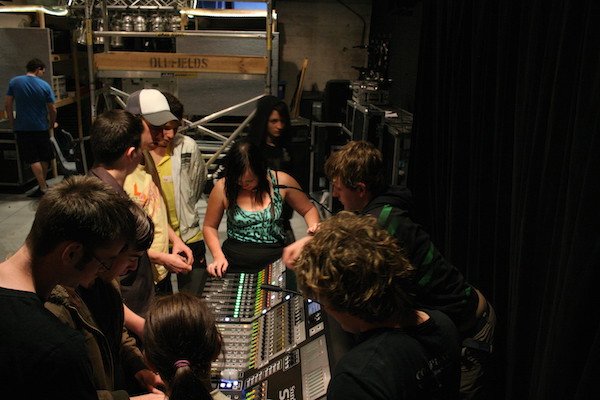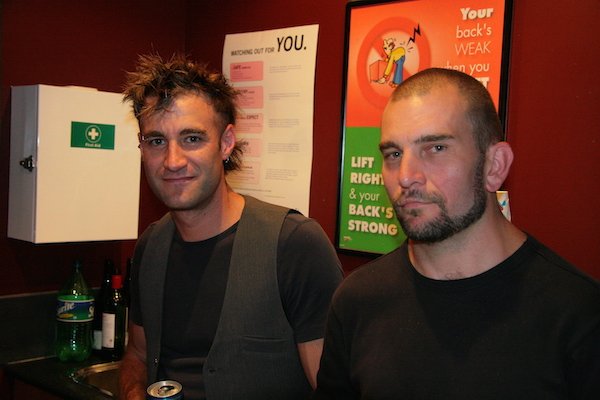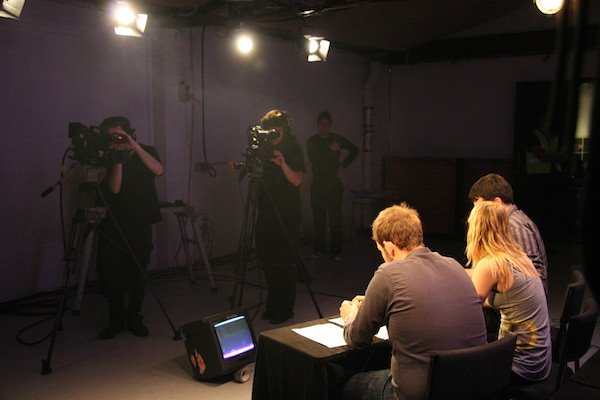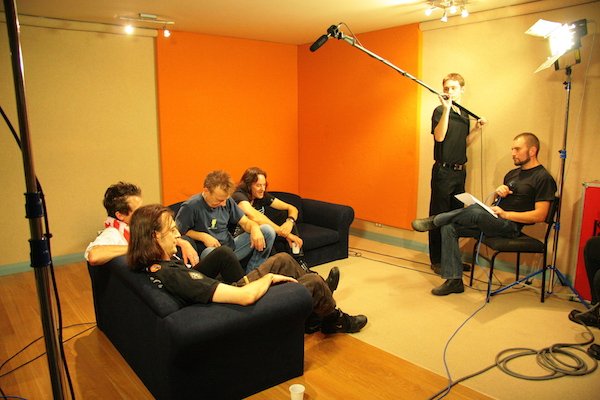News
22 Oct 2017
When you fail. A personal story

Subscribe to CX E-News
By Julius Grafton
In November 2010, seven years ago, I had a board meeting with myself and made the hardest decision ever. I closed down my vocational college, Julius Events College.
For nine years I’d struggled, dreamed, fretted and rejoiced while surfing the turbulent waves of regulations, compliance and missing fortunes that were not mine to control. In the lovingly furnished hallways of the campus, I walked around just after dawn that Monday, soaking it all up.
Downstairs was the TV control room, with red high back chairs and LED strips under lighting the curved desks. CCU, audio and switch gear all lit up, monitors on showing an empty auditorium next door. A range of stage lights hung on trusses, dimmers and gear neatly stacked on shelves.
Newly hung stage drapes lined the walls that were previously bare. The floor was freshly painted, scaffold tower and access gear carefully parked. P.A., microphones, wedges, mixers all neatly ready for classes.
Trusses were empty and waiting, under chain blocks. The air conditioners quietly pushed out cool air against the heat from the ply lined factory roof. Dozens of downlights all lit the beautiful space, not a single one not working.
It had just been mopped, the cleaners leaving as I arrived.
Upstairs the computer room had 12 new iMacs. Two classrooms were clean and neat, more air conditioning humming, classic gig posters from my startup era (the 1970’s) framed on the walls. Student desks, chairs, whiteboards and projectors were all in perfect condition. Two coffee machines were loaded, fresh milk was in the fridge, water coolers full, toilets all clean and wiped down.
We were almost at the end of semester, the students deep in projects and assessments. This batch of graduates were the first to have to chance to enter the TV Production Degree at Charles Stuart University, with whom we’d spent countless hours mapping and matching so some of our better kids could use their Diploma as a credit against the first year of the Degree.
For the 50 young guys and girls in my college, this was the start of the rest of their lives. For my wife at home that night, it was a sudden shock as I told her my dream was shattered.
“We are going to lose the house”. She walks in a circle, eyes glazed. ”We are going to lose the house”. A while later: “If we move from here, then you’re not coming with us”.
WHAT HAPPENED?
I’d hit Monday November 15 and confirmed with Monique, my college manager, that we had 15% less contracts than at the same time last year. This meant if I started the next year with a one year Diploma course, I would not have enough money to see the year through. On this simple liquidity test I had no choice other than to close. Shut down. Fold. Fail.
I’d gone home and told her.
“We won’t lose the house”, I said. She was not listening. We never did lose the house – instead, we lost that marriage. Not right then, but eventually. Because the trust had dissolved.
We made the announcement, refunded the future students, graduated the ones we had (not all of them, some didn’t have all the competencies) and wound down the whole machine. Jimmy, Steve and I them faced the heartbreaking task of dismantling EVERYTHING we’d built. Physically and psychologically.
This is a story about Business – about the planning and the execution. I had simply run out of working capital, having sunk $1.5 million into the college. A lot of the money came from selling ENTECH the first time, the rest from me.
There was a lot of debt, owed to banks and finance companies, and all secured by my personal guarantee – but none of the loans were on our mortgage. That was separate. The college company itself had little debt. Taxes were up to date, staff were paid up. We owed a lot of rent to Greg Kean, who owned Lots of Watts nearby, and who was our landlord. He forgave the rent once he learned how dire things were.
I got lucky in finding an honest insolvency lawyer, Ross McGlynn. He guided me through the mess, slowly and methodically helping me sort it all out. At one stage I had a debt collector turn up at our dream home in the bush at Wahroonga. A thuggish ex-footballer type, he came down the sandstone stairs that wound through the native garden. Our house was a Petit + Sevitt model home, Bali themed, set in four levels down the valley and overlooking a rain forest.
“I’m looking for JULIUS GRAFTON”, he thundered, voice carrying down the valley. The dogs started to bark. “I’m from American Express and I’m here to collect your debt”. These days that is criminal intimidation, but I’m not one for intimidation. “Turn around and get off my land”, I hissed. He left. My wife was by now very, very unhappy.
Ross McGlynn worked all the angles for several years. I did everything he told me to do. This included not answering my mobile phone, which lit up with debt collector calls several times an hour, most hours. He told me to get a ring tone of nothing – a silent tone. I then set that ring tone as a default. Then I set a custom tone for my family and clients. The phone would ring for them, but stay silent for all the collectors.
Eventually Ross helped it all go away. There was a lot of wheeling and dealing, not everyone got what they wanted. Not everything went as planned. It was sometimes very complex. I felt a lot of pain and now have a lousy credit rating – but no debt. I still own all of this media conglomerate.
DREAM, MARRIAGE & ROSS. THEY ALL DIED
The saddest part of all is that just as we were finalizing the final chapter in this saga, which was selling that dream home after the marriage collapsed, Ross called to say goodbye. He had terminal prostate cancer that had metastasized everywhere. He died a few days later. As well as helping me, Ross McGlynn had assisted dozens of victims of bank abuses from the GFC.
My advice? First of all, business carries the risk of failure, so plan to fail just as hard as you plan to succeed. I feared failure but I feared letting down vulnerable students and their families more. That led me to protect them from my actions. Their future payments were quarantined somewhere my creditors could not reach.
Second, if you have a choice (and this is tricky), try to ensure workers and trade creditors are looked after before banks and finance companies. I was paying high interest to the banks and financiers for many decades, with a AAA credit rating, so I had no psychological problem screwing them around.

Jimmy Den Ouden and Andy MacKenzie, my college mainstays. Steve James did the business in the background.
Finally, I would never guide anyone through a messy situation like this as I am not a Ross McGlynn. I also caution that in looking around to find an insolvency advisor I met a lot of dodgy and unscrupulous bottom swimmers who prey on the desperate. I was not desperate, I reasoned that on the catastrophe scale what was happening to me was survivable, so I kept calm.
I could sleep at night. I knew things would get better. I was healthy. Driving a really old crappy car wasn’t so bad. And when the marriage ended, renting a place wasn’t so bad either. At least I was in a new suburb, with new experiences.
Seven years later, I’m a better man and a better business owner because of all this. Personally I’ve never been happier, having met and married my fourth wife Kate – who I sometimes call ‘Katherine the fourth’. We live in our own dream home, and we pay off a mortgage that should end before I’m too ancient. Life is great!
Subscribe
Published monthly since 1991, our famous AV industry magazine is free for download or pay for print. Subscribers also receive CX News, our free weekly email with the latest industry news and jobs.








